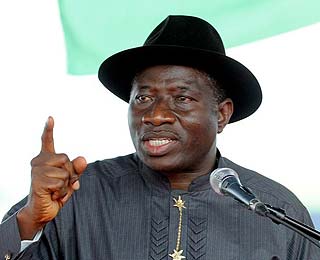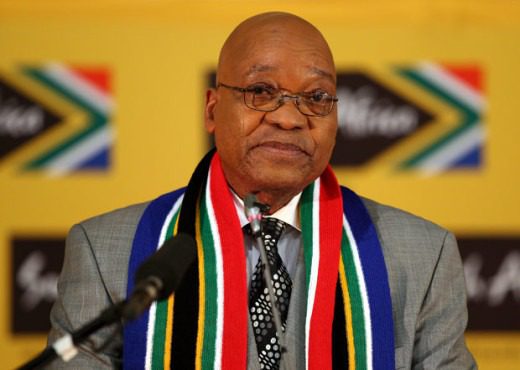National Issues
Defending Ourselves Against Atrocities -By Jibrin Ibrahim

The Boko Haram insurgency is capturing and keeping more Nigerian territory by the day and it appears to be getting stronger and stronger. This is surprising as such insurgencies normally limit their action to guerrilla hit and run tactics because in general, they should not be able to withstand a modern standing army of a State. My view has always been that the apparent success of Boko Haram is not a sign of their strength but an expression of the weakness of State and society in contemporary Nigeria.
The insurgency is a statement about the breakdown of religious hierarchies and order. It’s a revelation about the decomposition of social and moral education within the family. It’s an expression of galloping urbanisation in which poverty and ghettoes provide an atmosphere in which the disconnected individuals wallowing in misery can see the engagement in mass atrocities as acceptable and indeed desirable behaviour.
The Boko Haram insurgency is one of the most intensive and extensive violent conflicts in the world today with a death toll of about 13,000 since it broke out in July 2009. Its impact on population dynamics has been severe with over 1.5 million people internally displaced due to its reign of terror and destruction. There have also been a growing number of refugees emanating from the conflict and in Diffa region of Niger Republic alone, there are at least 100,000 refugees. The refugees are spread among the three neighbouring countries of Cameroon, Chad and Niger.
The most terrible aspect of the insurgency is perpetrating atrocities against innocent civilians. Slaughtering human beings like rams. They are attaching bombs to small girls and blowing up the girls and dozens of people around them. They are abducting girls and women and using them as sex slaves. Burning down towns and destroying peoples houses and public institutions. These atrocities are being committed in the name of God and they question is why would believers commit such terrible things against other human beings?
It was Voltaire, the French philosopher who made the point that “those who can make you believe absurdities, can make you commit atrocities.” It is indeed the case that so many among our youth have turned their back on the religious education and socialisation they received from their parents and have been trained to commit mass atrocities. There are objective reasons why terrorists engage in mass atrocities. First, they create fear among the people and the forces they are confronting by making them believe that the outcome of engagement would be terrible suffering and painful death. Secondly, the terrorists who have committed atrocities break the bond with their society, and in this case, their religious group to which they know they cannot return and become bonded with the terrorist group.
Boko Haram has been committing atrocities against different categories to achieve specific objections. They attack and kill Christians to encourage the emergence of confessional war that would divert energies and emotions to make the attainment of their own political objectives easier. They attack Islamic scholars who criticise them so that the absurdities of their belief would not be exposed to their members. They attack Muslims praying in mosques to convince their members that other Muslims are not real Muslims and deserve death. They attack schools, teachers and Muslims to block access to education and the development of critical thinking while promoting obscurantism.
They attack traditional rulers who are also religious leaders to legitimise their own religious authority as the only valid one. They attack public servants and security agencies as part of their deconstruction and destruction of the State as we know it. Precisely because the are pursuing multiple objectives that are not only military and political but are also ideological, religious, social and familial, it is important that the response to their action should also be multiple and emanate from various sources.
Boko Haram agents are able to move around freely in reconnaissance missions and stay and live with communities, which they study before carrying out their actions. Nigeria is at war and measures for enhanced security need to be taken at the community level for enhanced security. Nigerian communities and their traditional rulers have completely lost their capacity to monitor and track members of their communities and this capacity has to be re-developed. One of the reasons that Boko Haram was able to develop rapidly is that traditional rulers who are highly respected in their communities did not come out openly to condemn the evil nature of the group.
In a sense, the group was effective in playing its role as terrorists by killing the first set of traditional rulers who criticised them. The others therefore kept quiet, most likely out of fear. The fact of the matter however is that the group is out to kill all non-members so traditional rulers have to take the responsibility of coming out to condemn them even at personal risk. They need to take leadership in organising an open and concerted campaign against the group. They also need to be mobilisers in promoting community campaigns against Boko Haram. It is in this regard that calls by the Sultan of Sokoto and the Emir of Kano on people to defend themselves against Boko Haram is an important positive one.
Religious leaders have an even bigger role to play in countering the ideology that justifies violent extremism. They need to take the lead in counter radicalisation and contesting the religious explanation justifying violent extremism. Nigeria has developed a soft approach to countering violent extremism. The programme, which is anchored in the Office of the National Security Adviser to the President is extremely important to the success of the war against extremism and should be pursued with vigour.
It is religious leaders as key hubs in society that can be most effective in countering terrorism thinking processes within their communities. They need to use their networks and knowledge to mobilise at the levels of family, culture and religion to counter violent extremism. The strategy of counter radicalization can only succeed if community engagement and resilience through building trust and creating awareness is led by people who are known and respected in the at the local level.
The success of the war against the insurgency would depend of the success of parents and religious leaders convincing the youth in their communities that killing people, slaughtering them like rams, cannot the true practice of Islam. The terrorists have succeeded in perverting the true meaning and spirit of the religion and it is imperative that their success in radicalizing young persons be curtailed. In the medium term, it is the quality of religious education that would solve the problem of radicalization. Islamic scholars in particular have the responsibility of inculcating in the youth elements in the religious ideology and practice of the insurgents that contradict the true meaning of Islam. The recent practice of strapping innocent young girls with bombs and using them as vehicles to bomb, kill and maim people is so despicable that it should not be too difficult to show that it is un-Islamic.
Christian religious leaders also have a role in promoting the message that the insurgency is not a war by Muslims against Christians. It is a war by terrorists against Muslims, Christians and the Nigerian State. It is apparent that part of the strategy of the terrorists is to promote religious war between Christians and Muslims in Nigeria. As we move towards the 2015 elections, it is also the case that there are elements of Christian versus Muslim mobilization and campaigning, specifically in relation to the presidential elections. As Nigeria as a country is under threat, our political class need to have a sense of responsibility and reverse their steps which is leading to brinkmanship. It is essentially foolish to seek power using divisive tactics that could destroy the country they would like to rule over. Party affiliation and candidate choice should not be elements that hinder the war against terrorism.
One of the reasons that have led to the insurgency festering and growing has been the hostile attitude of security agencies to communities where insurgents have been active. Often, the security agencies engage their operations on the assumption that community members in general and the youth in particular are all supportive of the terrorists. This attitude has been very harmful to the success of the war against the insurgency. Promoting a blame game in this regard is counter-productive. Civil society and community organisations need to take up the challenge of working towards enhancing their own security consciousness and seeking ways of creating synergy with security agencies to enhance the war against the insurgency.
The insurgency has as a central goal the destruction of the education system. The safe schools programme that has been initiated is very important, as we do not want our children to associate the school system with death and destruction. Education as a means of imparting knowledge to the new generation is vital. The Northern political establishment have not promoted education with the vigour it deserves and a significant gap has been built up with other parts of the country. The insurgency is widening the gap as they target schools for destruction and kill and abduct students. Winning the war against the insurgency is also asserting the right of children to have access to education. We must rebuild schools that have been destroyed and refurbish dilapidated schools. The training of teachers is very important, as a majority of teachers in the affected zone do not have the requisite qualifications to do their work effectively.
In the medium term, the goal of education itself must be redefined to focus on the development of critical thinking skills and logical reasoning as an essential ingredient of citizenship and resistance to radicalization. To build resilience, civil society needs to mentor and nurture the youth through multiple civic platforms such as sports, arts, music, literature, history, leadership and service. Civic engagement builds civility and primes the youth to the type of inquisitive mentality and incredulity that is required for democratic citizenship. The foundations for promoting peace must be built within the family and school system and Nigeria must reconquer the capacity of society to engage in socialization processes that build rather than destroy communities and the nation. Training in civics must return to our schools and our children must be socialized to know and accept the diversity of the country as a multi-religious, multi-ethnic and multi-cultural society where tolerance is the basis of co-existence.





















